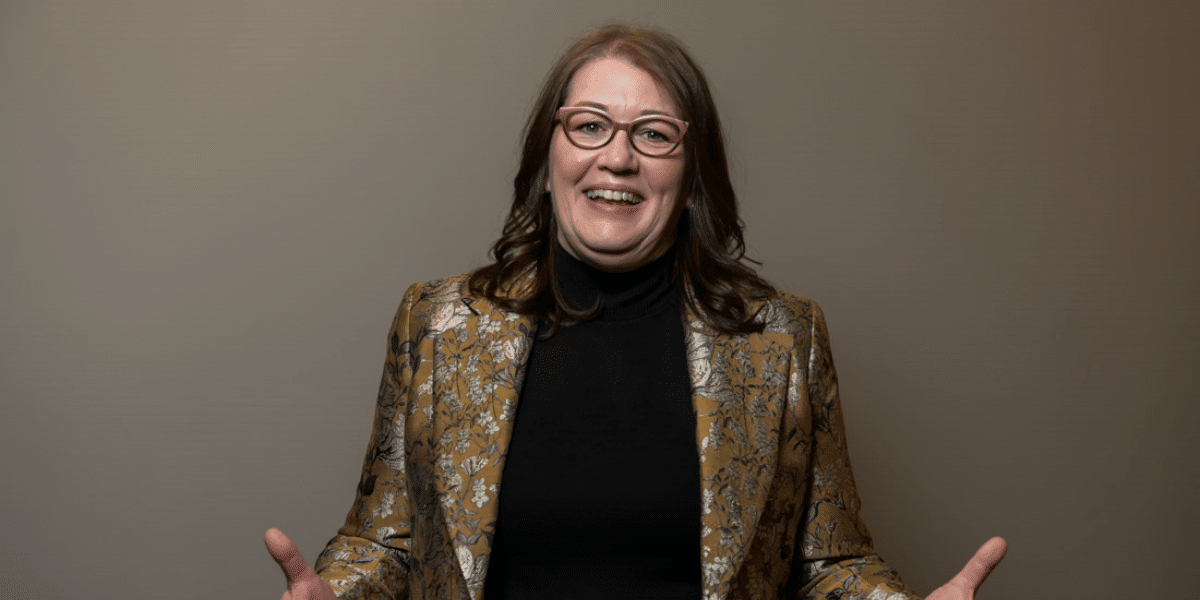By: Alyssa Miller
For far too long, we’ve bought into a false dilemma regarding employee well-being and company performance. We’ve treated them like opposing forces locked in tension, as if supporting one inherently detracts from the other. But ask Diane O’Connell, founder of Sorting it Out, and she’ll tell you that couldn’t be further from the truth.
“Personal growth and productivity aren’t clashing priorities – they’re intersecting opportunities,” insists Diane, a well-being reinvention strategist. “When we empower individuality and balance organizational needs with human needs, we create ecosystems where employees and businesses flourish symbiotically.”
Diane’s innovative approach stems from firsthand experience. As a former corporate attorney diagnosed with generalized anxiety disorder, she received a harsh wake-up call about the disconnect between well-intentioned workplace well-being initiatives and what employees need to thrive.
“Offering meditation apps and yoga classes is great, but it’s not enough on its own,” she explains. “There has to be a holistic look at the environment itself – the communication styles, opportunities for vulnerability, de-stigmatization of mental health conversations. If those core needs go unmet, so much gets left on the table.”
Instead of pushing generic, one-size-fits-all solutions, Diane‘s philosophy is all about co-creating tailored approaches that respect the individuality of each organization and employee. It’s a refreshingly multidisciplinary methodology based on her unique blend of experiences – from her legal acumen and mental health coaching to her neurolinguistic programming training and passion for diversity, equity and inclusion.
Diane deeply delves into each client’s distinctive culture and workplace dynamics. She embeds herself in their world, getting an intimate understanding of the leadership team’s goals, the employee needs, the hidden roadblocks and the opportunities. With that knowledge, she can start guiding them to thoughtfully reimagine policies and benefits—not just run-of-the-mill perks but initiatives engineered to nurture genuine psychological safety while simultaneously acting as a turbocharger for measurable business results.
“We crunch the numbers to quantify the bottom-line upsides of improved wellness – lower attrition and lawsuits, reduced healthcare costs, you name it,” says Diane. “But just as importantly, we intentionally create the human-centric conditions for people to thrive as their authentic selves.”

It’s about establishing a true culture of mutual care and understanding. An ecosystem where both the employees and the organization feel empowered to keep growing together.
Diane’s message resonates loudly in our modern age of rising consciousness around mental health. Her frameworks allow companies to meet ESG and social responsibility goals while cultivating high-performing workplace cultures of belonging. She’s pioneering a shift in how we approach well-being – and it all circles back to the simple premise that nurturing human potential is ethical and a savvy business strategy.
“At the end of the day, we spend so much of our lives at work,” reflects Diane. “Our jobs shouldn’t be what deplete us, but what allows us to grow as human beings continually. That’s the greatest win-win scenario available.”
Maybe it’s time we ditch the false dilemma of personal vs. professional priorities once and for all. If Diane’s passionate advocacy proves anything, it’s that the futures of employees and organizations are inextricably intertwined. What benefits one reverberates to benefit the other.
By finally realizing symbiosis, we can turn workplaces into true cultures of holistic well-being—ecosystems where individuals and businesses find the nurturing environment to evolve together in perpetuity.
Published By: Aize Perez


















